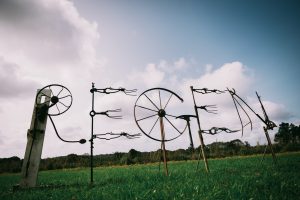VOLUNTEERS have helped make a significant improvement to the condition of wildlife habitats in Jersey.
A combination of Community Service volunteers, school groups, companies and individuals has provided thousands of hours of habitat management work at areas such as Noirmont, Portelet, Gorselands and Ouaisne, which are all designated as sites of special interest because of their importance to local wildlife.
The Natural Environment team at the Department of the Environment co-ordinates the work of the volunteers and monitors the sites. Habitat condition monitoring shows that all the sites are in better shape than they were five years ago; good news for the plants and animals that rely on specific habitat types to thrive.
Volunteers are essential at every stage of Jersey’s environmental management and monitoring programmes. According to the department, one of the most obvious positive effects of the habitat conservation work is an improvement in butterfly numbers at the sites where volunteers have been working.
Butterflies are an excellent indicator of environmental health as they need a range of plants and habitats on which to lay eggs, feed and pupate. Volunteers not only help improve the condition of wild areas by doing practical conservation tasks, they also monitor the positive impact their work has had on local wildlife.
Since 2004 Jersey has operated a butterfly monitoring scheme which relies on volunteers counting butterflies along a set route every week between April and September. Volunteers survey 41 sites altogether and in the course of their work, they have walked more than 4,000 miles and counted more than 130,000 butterflies since 2004. Given the small size of Jersey, this is one of the most successful butterfly monitoring schemes in Europe and the results have been admired by experts from several countries.
Butterflies such as the Grayling and Green Hairstreak, which are totally dependent on semi-natural habitat, have done particularly well. Their populations increased by 458 per cent and 48 per cent respectively between 2004 and 2013.
These two species are associated with the sort of semi-natural sites where a lot of work has been carried out by volunteers, and the increase in butterfly populations suggests that the volunteer work is already benefiting Jersey’s wildlife.
The enthusiasm of volunteers in managing the habitats of Jersey for nature conservation goes from strength to strength. Fuelled just by tea and cake, the Jersey Conservation Volunteers meet monthly during the winter months with 30 – 40 regular attendees. Together, they have contributed 363 hours of vital habitat management on protected sites and other environmentally sensitive areas. This accounted for 11 per cent of volunteer conservation work carried out on publicly-managed land.
Community Services accounted for 73 per cent of all volunteer labour carried out for the Environment Department in 2015, providing a 2375 hours, that’s the equivalent of employing an extra member of staff for nearly a year and a half.
The remaining 16 per cent of volunteers included school groups; particularly sixth formers and corporate organisations.




